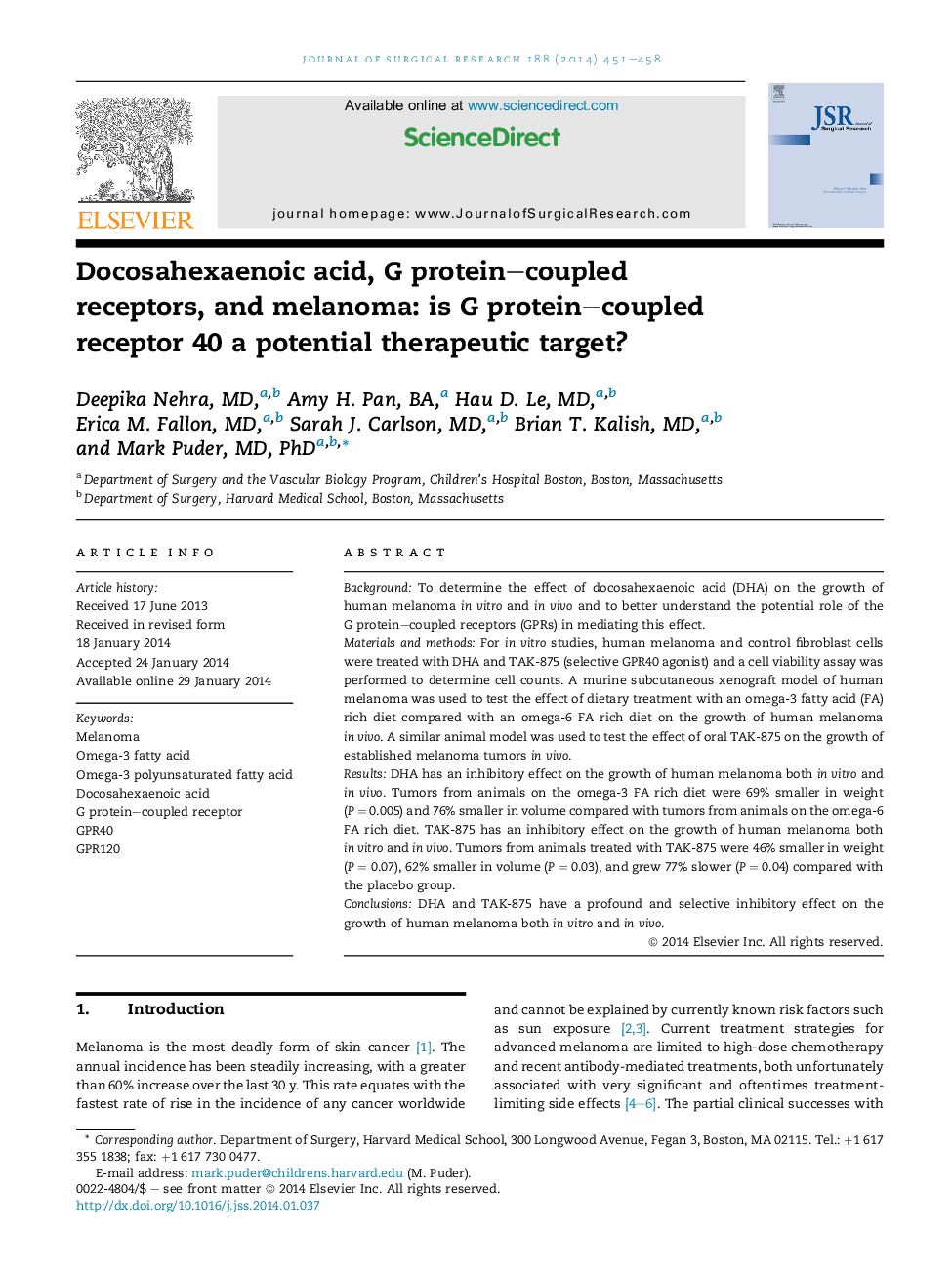| Article ID | Journal | Published Year | Pages | File Type |
|---|---|---|---|---|
| 6254043 | Journal of Surgical Research | 2014 | 8 Pages |
BackgroundTo determine the effect of docosahexaenoic acid (DHA) on the growth of human melanoma in vitro and in vivo and to better understand the potential role of the G protein-coupled receptors (GPRs) in mediating this effect.Materials and methodsFor in vitro studies, human melanoma and control fibroblast cells were treated with DHA and TAK-875 (selective GPR40 agonist) and a cell viability assay was performed to determine cell counts. A murine subcutaneous xenograft model of human melanoma was used to test the effect of dietary treatment with an omega-3 fatty acid (FA) rich diet compared with an omega-6 FA rich diet on the growth of human melanoma in vivo. A similar animal model was used to test the effect of oral TAK-875 on the growth of established melanoma tumors in vivo.ResultsDHA has an inhibitory effect on the growth of human melanoma both in vitro and in vivo. Tumors from animals on the omega-3 FA rich diet were 69% smaller in weight (P = 0.005) and 76% smaller in volume compared with tumors from animals on the omega-6 FA rich diet. TAK-875 has an inhibitory effect on the growth of human melanoma both in vitro and in vivo. Tumors from animals treated with TAK-875 were 46% smaller in weight (P = 0.07), 62% smaller in volume (P = 0.03), and grew 77% slower (P = 0.04) compared with the placebo group.ConclusionsDHA and TAK-875 have a profound and selective inhibitory effect on the growth of human melanoma both in vitro and in vivo.
